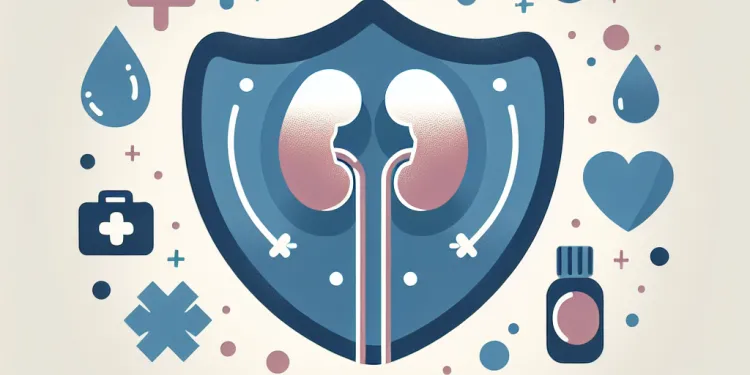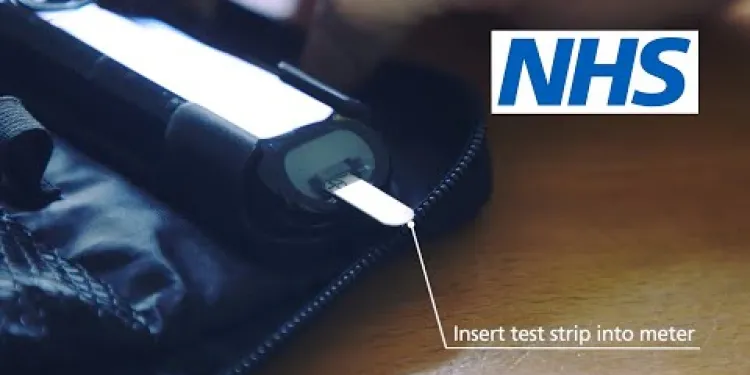
Find Help
More Items From Ergsy search
-

Why is reducing aldosterone levels important?
Relevance: 100%
-

What is Baxdrostat and what is it used for?
Relevance: 35%
-

How does Baxdrostat work?
Relevance: 30%
-

Is Baxdrostat used in treating heart failure?
Relevance: 29%
-

What is Baxdrostat used for?
Relevance: 28%
-

Can GLP-1 levels be measured?
Relevance: 28%
-

Can exercise influence cortisol levels?
Relevance: 27%
-

Can diet influence cortisol levels?
Relevance: 27%
-

How can I reduce my exposure to pollen?
Relevance: 26%
-

How does Abiraterone affect hormone levels?
Relevance: 26%
-

Can cortisol levels be measured?
Relevance: 26%
-

What medications are commonly prescribed for heart failure?
Relevance: 26%
-

What is the importance of PSA levels in treatment?
Relevance: 26%
-

How can stress management affect cortisol levels?
Relevance: 26%
-

Can cortisol levels impact mood and mental health?
Relevance: 25%
-

Can Baxdrostat be used in patients with renal impairment?
Relevance: 25%
-

How does sugar affect my energy levels?
Relevance: 25%
-

What factors can influence cortisol levels?
Relevance: 25%
-

What are PSA levels? - Prostate Cancer
Relevance: 25%
-

Can fiber help lower cholesterol levels?
Relevance: 25%
-

Are there any lifestyle changes that can help regulate cortisol levels?
Relevance: 25%
-

What can high levels of cortisol cause?
Relevance: 24%
-

How can I reduce my salt intake?
Relevance: 24%
-

How do cortisol levels differ between acute and chronic stress?
Relevance: 24%
-

What can low levels of cortisol cause?
Relevance: 24%
-

Does drinking orange juice affect blood sugar levels?
Relevance: 24%
-

How does Ozempic affect blood sugar levels?
Relevance: 24%
-

How do I reduce unhealthy fat consumption?
Relevance: 23%
-

Can Baxdrostat affect blood sugar levels?
Relevance: 23%
-

What foods should I avoid to reduce my salt intake?
Relevance: 23%
-

How does climate change affect pollen levels?
Relevance: 23%
-

How often should I check my blood glucose levels?
Relevance: 23%
-

High Air Pollution Levels Linked to Rising Cases of Respiratory Issues
Relevance: 23%
-

What SPF level is recommended to prevent sunburn?
Relevance: 23%
-

Diabetes: How to check your blood glucose level | NHS
Relevance: 23%
-

Do all pregnancy tests detect the same levels of hCG?
Relevance: 22%
-

Can Ibuprofen be used to reduce inflammation?
Relevance: 22%
-

How effective is Mounjaro in controlling blood sugar levels?
Relevance: 22%
-

Does Paracetamol reduce inflammation?
Relevance: 21%
-

How can I reduce my sugar intake?
Relevance: 21%
Understanding Aldosterone
Aldosterone is a hormone produced by the adrenal glands, which are located on top of the kidneys. It plays a critical role in maintaining cardiovascular health by regulating blood pressure and electrolyte balance. Specifically, aldosterone controls sodium and water retention, while promoting the excretion of potassium in the kidneys. This balance is crucial for the proper function of various body systems.
Why Reducing Aldosterone Levels Matters
High levels of aldosterone in the body, a condition known as hyperaldosteronism, can lead to a series of health issues, particularly affecting the cardiovascular system. One primary concern is the development of hypertension, or high blood pressure, which significantly increases the risk of heart disease and stroke. Additionally, excessive aldosterone can cause fluid retention, leading to swelling and increased cardiac workload.
Reducing aldosterone levels is important for preventing or managing these health risks. By controlling aldosterone production, individuals can better manage their blood pressure, reduce strain on the heart, and prevent long-term damage to the cardiovascular system. This is particularly vital for those with conditions such as heart failure, where fluid overload can exacerbate symptoms and lead to further complications.
Health Benefits of Lower Aldosterone Levels
Lowering aldosterone levels has several health benefits. For individuals with hypertension, reducing aldosterone can lead to better blood pressure control, decreasing the likelihood of developing heart disease. In those with heart failure, controlling aldosterone can alleviate symptoms by reducing sodium and water retention, thereby decreasing fluid buildup and easing the burden on the heart.
Furthermore, balanced aldosterone levels support improved renal function by maintaining appropriate electrolyte levels. This balance helps prevent issues such as hypokalemia, a condition characterized by low potassium levels that can cause muscle weakness and arrhythmias. Overall, regulating aldosterone is a key factor in promoting cardiovascular and renal health.
Approaches to Reducing Aldosterone Levels
There are several approaches to managing and reducing aldosterone levels. Medical interventions include the use of medications such as mineralocorticoid receptor antagonists (MRAs), which block aldosterone's effects, helping reduce blood pressure and fluid retention. Dietary changes can also play a role; for instance, reducing sodium intake can lessen aldosterone production.
Lifestyle modifications, such as increasing physical activity and managing stress, can indirectly influence aldosterone levels by improving overall cardiovascular health. Regular monitoring by healthcare professionals ensures that aldosterone levels remain within a healthy range, providing preventive care against potential complications associated with its excess.
Conclusion
In conclusion, the importance of reducing aldosterone levels lies in its significant impact on cardiovascular and renal health. By maintaining appropriate aldosterone levels, individuals can mitigate the risks associated with high blood pressure and fluid imbalance, leading to better overall health and a reduced likelihood of developing related complications. Through a combination of medical treatment and lifestyle adjustments, managing aldosterone levels is a feasible strategy for enhancing quality of life.
Understanding Aldosterone
Aldosterone is a special chemical that your body makes. It comes from the adrenal glands, which are on top of your kidneys. Aldosterone helps your heart stay healthy by keeping your blood pressure normal and balancing certain salts in your body. It helps your body keep the right amount of salt and water. It also makes sure you get rid of excess potassium. Keeping this balance is very important for your body to work well.
Why Reducing Aldosterone Levels Matters
Sometimes, your body makes too much aldosterone. This is called hyperaldosteronism, and it can cause health problems. One big problem is high blood pressure, which can lead to heart disease and strokes. Too much aldosterone also means your body retains extra fluid, causing swelling and making your heart work harder.
Lowering aldosterone levels is important to keep these problems in check. By controlling how much aldosterone your body makes, you can help your blood pressure stay normal, make your heart work less hard, and stop damage to your heart and blood vessels from happening over time. This is especially important for people with heart problems, where too much fluid can make things worse.
Health Benefits of Lower Aldosterone Levels
Having less aldosterone in your body can be very good for your health. People with high blood pressure can keep it more under control when aldosterone is lower, which helps lower the chances of heart problems. For those with heart issues, less aldosterone can mean less swelling and stress on the heart because your body holds onto less fluid.
Keeping aldosterone at the right level also helps your kidneys work better. This makes sure your body has the right amount of important salts. It helps prevent problems like having too little potassium, which can make your muscles weak and your heart beat funny. Overall, controlling aldosterone is important for a healthy heart and kidneys.
Approaches to Reducing Aldosterone Levels
There are different ways to lower aldosterone levels. Doctors can give you medicine to help block the effects of aldosterone, which helps keep your blood pressure and fluid levels normal. Eating less salt is another way to reduce aldosterone.
Changing your lifestyle can also help. Being more active and lowering stress can keep your heart healthy and help control aldosterone. Seeing your doctor regularly helps keep an eye on aldosterone levels, ensuring they are not too high, which can prevent other health problems.
Conclusion
In summary, keeping aldosterone levels in check is very important for your heart and kidney health. By making sure aldosterone stays at healthy levels, you can prevent high blood pressure and fluid imbalance, leading to better health overall. Medications and lifestyle changes can both help manage aldosterone levels, making life better and healthier.
Frequently Asked Questions
Why is reducing aldosterone levels important?
Reducing aldosterone levels is important because elevated aldosterone can lead to high blood pressure, cardiovascular damage, and electrolyte imbalances.
What health issues can high aldosterone levels cause?
High aldosterone levels can cause hypertension, heart disease, kidney damage, stroke, and imbalances in electrolytes such as sodium and potassium.
How does aldosterone affect blood pressure?
Aldosterone increases blood pressure by promoting sodium retention in the kidneys, which leads to increased blood volume.
What is primary aldosteronism?
Primary aldosteronism, also known as Conn's syndrome, is a condition caused by overproduction of aldosterone, leading to hypertension and low potassium levels.
What are common symptoms of high aldosterone?
Symptoms may include high blood pressure, low potassium levels, muscle weakness, fatigue, and sometimes headaches.
Can reducing aldosterone levels improve hypertension?
Yes, reducing aldosterone levels can help manage hypertension, particularly in cases where aldosterone excess is contributing to high blood pressure.
What treatments are available to lower aldosterone levels?
Treatments include medications such as mineralocorticoid receptor antagonists, lifestyle changes, and in some cases, surgery.
How does aldosterone contribute to cardiovascular damage?
Aldosterone can cause fibrosis in the heart and blood vessels, which contributes to cardiovascular damage and increases the risk of heart failure.
What role does potassium play in aldosterone regulation?
High levels of potassium can suppress aldosterone secretion, whereas low potassium levels can stimulate its production.
Why is aldosterone reduction important for kidney health?
Reducing aldosterone levels helps prevent kidney damage and preserves kidney function by preventing fibrosis and reducing blood pressure.
What lifestyle changes can help lower aldosterone levels?
Reducing salt intake, losing weight, managing stress, and regular physical activity can help lower aldosterone levels.
How can stress affect aldosterone levels?
Stress can increase aldosterone secretion, contributing to elevated blood pressure and potential imbalances in the body.
Can diet influence aldosterone levels?
Yes, a diet high in sodium can increase aldosterone production, while increasing potassium intake can help lower it.
Is there a link between aldosterone and sleep quality?
Yes, high aldosterone levels can disrupt sleep patterns due to the effects on blood pressure and electrolyte balance.
How does aldosterone affect electrolyte balance?
Aldosterone regulates the balance of sodium and potassium by increasing sodium reabsorption and promoting potassium excretion.
What is the relationship between aldosterone and heart failure?
Elevated aldosterone can worsen heart failure by increasing fluid retention and causing heart muscle fibrosis.
How do mineralocorticoid receptor antagonists work?
These medications block the effects of aldosterone, helping to reduce blood pressure and prevent damage to the heart and kidneys.
What tests can diagnose aldosterone-related conditions?
Tests include blood tests for aldosterone and renin levels, urine tests, and imaging studies like CT scans to identify adrenal abnormalities.
What are potential side effects of medications that lower aldosterone?
Side effects may include electrolyte imbalances, fatigue, dizziness, headache, and gastrointestinal issues.
Can reducing aldosterone levels aid in weight management?
Yes, lowering aldosterone can help reduce fluid retention, which may aid in weight management and improve cardiovascular health.
Why is it good to lower aldosterone levels?
Aldosterone is a chemical in your body. It helps control blood pressure. If there is too much aldosterone, your blood pressure can be too high.
High blood pressure is not good. It can make your heart and blood vessels work too hard and hurt them.
Lowering aldosterone can help keep your blood pressure at a healthy level.
Here are some ways to help:
- Eat healthy foods, like fruits and vegetables.
- Exercise regularly, like walking or playing outside.
- Talk to a doctor for help and advice.
It is important to lower aldosterone levels. High aldosterone can make your blood pressure too high. It can also hurt your heart and mess up the body's balance of salts and water.
To learn more easily, you can try using visual aids like pictures. Listening to information can also help, like using audiobooks. Asking someone to explain things in simple words is good too.
What health problems can too much aldosterone cause?
Aldosterone is a hormone made in your body. If there is too much, it can cause problems:- High blood pressure: Your heart has to work hard to pump blood.
- Low potassium: This can make you feel weak or tired.
- Muscle cramps or pain: Your muscles might hurt.
- Trouble seeing: It might be hard to see things clearly.
- Text-to-speech tools: These can read text out loud.
- Highlighting tools: These help follow along as you read.
- Breaks: Take breaks to rest your eyes and mind.
High aldosterone levels can make you sick. It can cause high blood pressure, heart problems, and damage your kidneys. It can also cause a stroke and mess up the balance of important minerals like sodium and potassium in your body.
Here are some tools and tips to help you understand this better:
- Use pictures or drawings to explain health problems.
- Ask a doctor or a nurse for help if you do not understand.
- Use apps or videos that explain health information simply.
- Talk to someone you trust if you feel worried or unsure.
How does aldosterone affect blood pressure?
Aldosterone is a chemical in our bodies. It helps to keep the right amount of salt and water.
When our bodies have more aldosterone, it makes the blood pressure go up. This is because the body keeps more salt and water.
When the blood pressure goes up, sometimes doctors will help. They might give medicine to make it go down.
If you find reading hard, ask someone you trust to read with you. You can also use tools that read aloud and help with words.
Aldosterone is a chemical in our body. It helps to make our blood pressure go up. It does this by telling our kidneys to keep more salt. When our body keeps more salt, it also keeps more water. This makes more blood in our body, and that makes blood pressure higher.
Tools to help understand:
- Pictures: Try looking at pictures of how the body works.
- Videos: Watch videos that explain how blood pressure works.
- Apps: Use apps that explain body functions in simple ways.
What is primary aldosteronism?
Primary aldosteronism is when your body makes too much of a hormone called aldosterone.
This can make your blood pressure go up.
If you have primary aldosteronism, you might feel weak or get headaches.
Doctors can help by giving you medicine and checking your blood pressure.
Ask a doctor or nurse if you need more help.
Use pictures or videos to understand better.
Primary aldosteronism is a health problem. It is also called Conn's syndrome. This happens when the body makes too much of a hormone called aldosterone. It can make your blood pressure too high and your potassium levels too low.
If you need help understanding this, you can:
- Ask someone to read it with you.
- Use a computer or phone to read it out loud.
- Break down big words and read slowly.
What are signs of too much aldosterone?
Too much aldosterone makes your body hold onto salt and lose potassium.
Here are some signs:
- High blood pressure: Your heart has to work harder.
- Muscle cramps: Your muscles can feel tight or sore.
- Weakness: You might feel tired and not strong.
- Thirst: You may feel very thirsty.
- Need to pee more often: You may go to the toilet a lot.
Tips to help:
- Ask your doctor if you feel these signs.
- Use simple diagrams to understand your body.
- Try talking tools to help read out information.
You might feel some of these things: high blood pressure (when your heart works really hard), low potassium (potassium helps your body stay healthy), feeling weak in your muscles, getting tired easily, and sometimes having headaches.
Can lowering aldosterone help with high blood pressure?
Yes, lowering aldosterone levels can help control high blood pressure. This is especially true when too much aldosterone is causing the high blood pressure.
What can help to lower aldosterone levels?
Aldosterone is a chemical in your body. Sometimes, it can be too high. Here are some things that can help:
- Medicine: A doctor can give you pills to help.
- Healthy Eating: Eating less salt can help your body.
- Exercise: Moving your body is good for you. Try walking or playing outside.
- Relaxation techniques: Staying calm and happy can help. Try deep breathing or listening to music.
Always talk to a doctor or nurse if you need help or have questions.
Treatment can include taking medicine, making changes to how you live, and sometimes having an operation.
How does aldosterone harm the heart and blood vessels?
Aldosterone is a chemical that can hurt the heart and blood vessels. It can make them stiff and not work well. This can lead to heart problems and make it more likely to have heart failure.
What does potassium do with aldosterone?
Potassium helps control a hormone called aldosterone. Aldosterone tells the body to keep the right amount of salt and water. This helps keep blood pressure normal.
Tools or tips to help understand:
- Use simple drawings that show how potassium and aldosterone work together.
- Watch videos that explain how the body uses potassium and aldosterone.
- Ask a teacher or a helper to explain if you have questions.
If there is a lot of potassium, it makes less aldosterone (a hormone). If there is not much potassium, it makes more aldosterone.
Here are some tools that might help you understand better:
- Highlighting: Use bright colors to mark important words.
- Pictures: Draw simple pictures to help explain ideas.
- Read Aloud: Listen to someone else read the text as you follow along.
Why is lowering aldosterone important for kidney health?
Aldosterone is a chemical in your body. It helps control how much salt and water you have inside you.
If there is too much aldosterone, it can be bad for your kidneys. Your kidneys might not work well.
Healthy kidneys help clean your blood and keep you strong.
Lowering aldosterone can help your kidneys stay strong and healthy.
Tools to help understand:
- Read with someone who can explain words you don’t know.
- Use pictures to learn about kidneys and aldosterone.
- Ask questions if something is confusing.
Lowering aldosterone levels is good for your kidneys. It stops them from getting hurt and helps them work well. It stops scarring and keeps your blood pressure low.
Support tools: Try using pictures or videos to learn more. Ask a grown-up or a friend to explain if you need help.
How can I change my life to lower aldosterone levels?
Aldosterone is a hormone in your body.
Here are some tips to help lower it:
- Eat less salt. Too much salt can raise aldosterone.
- Exercise regularly. Moving your body helps.
- Manage stress. Try relaxing activities like deep breathing or meditation.
- If you smoke, try to stop.
- Avoid alcohol or drink less.
Ask a doctor if you need help with these steps.
To help lower aldosterone levels, try to:
- Eat less salt
- Lose some weight
- Manage stress
- Exercise regularly
How can stress change aldosterone levels?
Stress can make your body feel different. It can also change the levels of some chemicals in your body. One of these chemicals is called aldosterone.
Aldosterone helps control salt and water in your body. When you are stressed, your body might make more or less aldosterone. This can change how your body manages salt and water.
If you want to understand more, you can ask a doctor or use apps that help explain these ideas with pictures and simple words.
Feeling stressed can make the body produce more of a chemical called aldosterone. This can make your blood pressure go up and might cause other problems in your body.
Can the food we eat change aldosterone levels?
Aldosterone is something in our body that helps control blood pressure. Food might change how much aldosterone we have.
Here is how to understand it better:
- Eat healthy foods like fruits, veggies, and lean meats.
- Watch salt intake because too much can raise aldosterone.
- Drink enough water every day.
Try using picture charts or apps to help learn about healthy foods. Ask a grown-up, teacher, or doctor to explain more. They can help you understand how food affects your body.
Eating a lot of salty food can make your body create more of a chemical called aldosterone. But if you eat foods with a lot of potassium, like bananas or potatoes, it can help your body make less of this chemical.
Does aldosterone affect how well we sleep?
Yes, having too much of a hormone called aldosterone can make it hard to sleep well. This is because it can change your blood pressure and the way your body handles salt and water.
What does aldosterone do to salt and water in our body?
Aldosterone is a hormone. It helps control the salt and water in our body.
Aldosterone tells the kidneys to keep more salt in the body. This helps the body stay healthy and strong.
When the body keeps more salt, it also holds onto more water. This keeps the right balance of salt and water in our blood.
If you want to learn more, using pictures and videos can help! Ask someone you trust if you have questions.
Aldosterone helps keep the right amount of salt and potassium in your body. It makes your body keep more salt and get rid of extra potassium.
How are aldosterone and heart problems connected?
Aldosterone is a chemical in your body. It helps control salt and water. If your body makes too much aldosterone, it can cause heart problems. This can make your heart tired and not work well.
People who have heart problems need to check their aldosterone levels. This can help doctors find the best way to help them feel better.
Here are some tools to help understand this:
- Ask a doctor to explain with simple words.
- Use pictures to show how the heart works.
- Watch videos for a clear explanation.
High levels of a hormone called aldosterone can make heart problems worse. It can cause your body to hold onto too much water. It can also make your heart muscle stiffer.
Helpful Tips:
- Ask your doctor about medicine to help with heart health.
- Write down how you feel and share it with your doctor.
How do mineralocorticoid receptor blockers work?
Mineralocorticoid receptor blockers are medicines. They help the body by stopping certain chemicals that can cause harm.
These medicines can lower blood pressure and help the heart. They are good for people who have heart or kidney problems.
Ask a doctor or nurse if you want to know more about these medicines. They can help explain in a way that is easy to understand.
These medicines stop a chemical called aldosterone. This helps lower blood pressure and keeps the heart and kidneys healthy.
What tests can show problems with aldosterone?
If doctors think you have a problem with aldosterone, they can use tests to check. Here are some of the tests:
- Blood Test: A small needle takes some blood from your arm. The blood is checked for aldosterone levels.
- Urine Test: You pee in a cup. Your pee is checked for aldosterone levels.
- Imaging Tests: Doctors might use pictures of your body, like an X-ray, to look at your adrenal glands.
If reading is hard, you can ask someone to read to you. You can also try using pictures or videos to learn. They can make things clearer. Also, ask your doctor to explain in a simple way. They are there to help you understand.
Doctors use different tests to check your adrenal glands. They take some blood for tests, and they look at your pee. They might also use a special camera called a CT scan to look inside your body.
These tests help doctors see if there are any problems.
If you find reading hard, you can use tools that read the words out loud for you. You can also ask someone to help read it with you.
What can happen when taking medicine to lower aldosterone?
Some medicines can make less aldosterone in your body. Aldosterone helps control salt and water in your body. When you take these medicines, some things might happen:
- You might feel dizzy or weak.
- You might have a headache.
- You might feel more tired than normal.
- Your tummy might hurt.
- You might have trouble with your balance.
If you feel any of these things, tell a grown-up or a doctor. They can help you. Always ask for help if you don’t understand something. Using pictures or apps that read out loud can also help.
Sometimes, medicines can cause problems. These problems can be:
- Changes in body salts.
- Feeling very tired.
- Feeling dizzy or lightheaded.
- A sore head.
- Stomach problems.
If you want help, you can ask someone you trust to talk about it. You can also use pictures or tools online to learn more.
Can lowering aldosterone help with weight loss?
Aldosterone is something in our body. It can make us hold onto salt and water.
If we have too much aldosterone, it might make us gain weight.
Lowering aldosterone might help us lose weight.
Using apps or getting help from someone can make it easier to understand.
Yes, lowering aldosterone can help your body hold onto less water. This might help you manage your weight and make your heart healthier.
You can use simple tools like lists or diagrams to help you understand better. Speaking with a doctor or using apps with reminders can also be helpful.
Useful Links
This website offers general information and is not a substitute for professional advice.
Always seek guidance from qualified professionals.
If you have any medical concerns or need urgent help, contact a healthcare professional or emergency services immediately.
- Ergsy carfully checks the information in the videos we provide here.
- Videos shown by Youtube after a video has completed, have NOT been reviewed by ERGSY.
- To view, click the arrow in centre of video.
- Most of the videos you find here will have subtitles and/or closed captions available.
- You may need to turn these on, and choose your preferred language.
- Go to the video you'd like to watch.
- If closed captions (CC) are available, settings will be visible on the bottom right of the video player.
- To turn on Captions, click settings .
- To turn off Captions, click settings again.
More Items From Ergsy search
-

Why is reducing aldosterone levels important?
Relevance: 100%
-

What is Baxdrostat and what is it used for?
Relevance: 35%
-

How does Baxdrostat work?
Relevance: 30%
-

Is Baxdrostat used in treating heart failure?
Relevance: 29%
-

What is Baxdrostat used for?
Relevance: 28%
-

Can GLP-1 levels be measured?
Relevance: 28%
-

Can exercise influence cortisol levels?
Relevance: 27%
-

Can diet influence cortisol levels?
Relevance: 27%
-

How can I reduce my exposure to pollen?
Relevance: 26%
-

How does Abiraterone affect hormone levels?
Relevance: 26%
-

Can cortisol levels be measured?
Relevance: 26%
-

What medications are commonly prescribed for heart failure?
Relevance: 26%
-

What is the importance of PSA levels in treatment?
Relevance: 26%
-

How can stress management affect cortisol levels?
Relevance: 26%
-

Can cortisol levels impact mood and mental health?
Relevance: 25%
-

Can Baxdrostat be used in patients with renal impairment?
Relevance: 25%
-

How does sugar affect my energy levels?
Relevance: 25%
-

What factors can influence cortisol levels?
Relevance: 25%
-

What are PSA levels? - Prostate Cancer
Relevance: 25%
-

Can fiber help lower cholesterol levels?
Relevance: 25%
-

Are there any lifestyle changes that can help regulate cortisol levels?
Relevance: 25%
-

What can high levels of cortisol cause?
Relevance: 24%
-

How can I reduce my salt intake?
Relevance: 24%
-

How do cortisol levels differ between acute and chronic stress?
Relevance: 24%
-

What can low levels of cortisol cause?
Relevance: 24%
-

Does drinking orange juice affect blood sugar levels?
Relevance: 24%
-

How does Ozempic affect blood sugar levels?
Relevance: 24%
-

How do I reduce unhealthy fat consumption?
Relevance: 23%
-

Can Baxdrostat affect blood sugar levels?
Relevance: 23%
-

What foods should I avoid to reduce my salt intake?
Relevance: 23%
-

How does climate change affect pollen levels?
Relevance: 23%
-

How often should I check my blood glucose levels?
Relevance: 23%
-

High Air Pollution Levels Linked to Rising Cases of Respiratory Issues
Relevance: 23%
-

What SPF level is recommended to prevent sunburn?
Relevance: 23%
-

Diabetes: How to check your blood glucose level | NHS
Relevance: 23%
-

Do all pregnancy tests detect the same levels of hCG?
Relevance: 22%
-

Can Ibuprofen be used to reduce inflammation?
Relevance: 22%
-

How effective is Mounjaro in controlling blood sugar levels?
Relevance: 22%
-

Does Paracetamol reduce inflammation?
Relevance: 21%
-

How can I reduce my sugar intake?
Relevance: 21%


